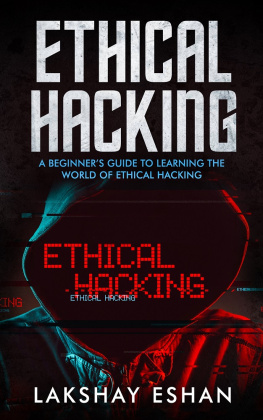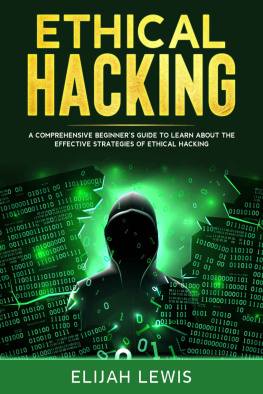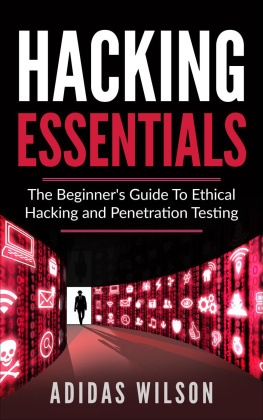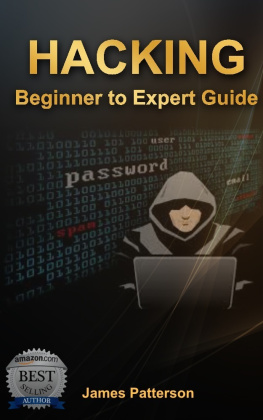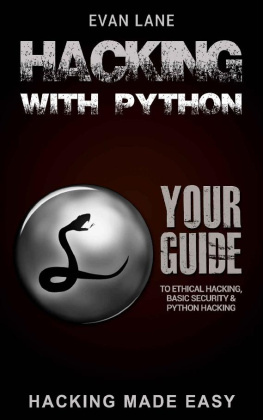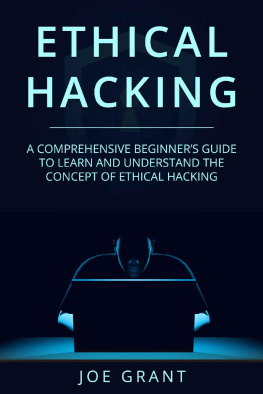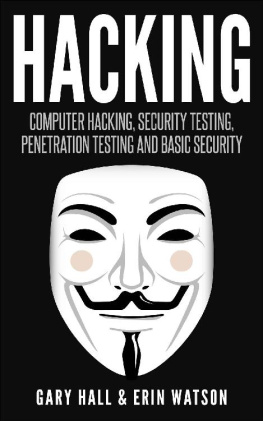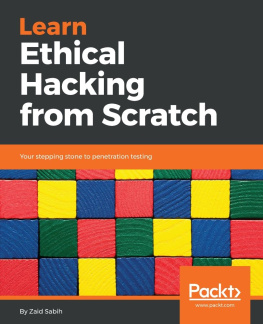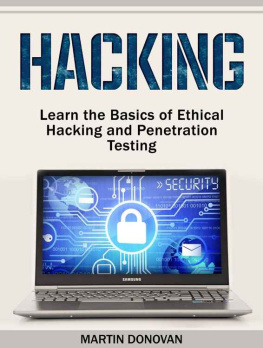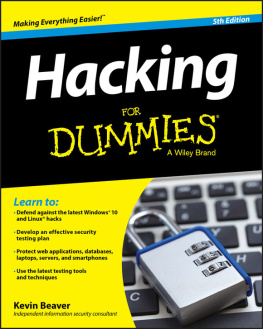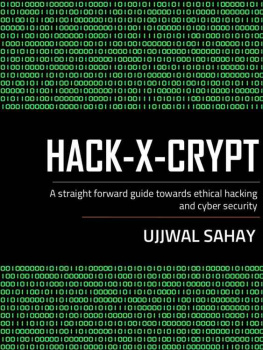Thank you for purchasing the book, Ethical Hacking - A Beginners Guide to Learning the World of Ethical Hacking.
If you are someone who wants to hack into another persons system for malicious reasons, you should stop reading this book. This book is written for those people who want to hack systems to test identify the security holes and vulnerabilities of those systems. This book outlines different tricks and techniques that an ethical hacker can use to assess the security of the systems, identify vulnerabilities and fix those vulnerabilities. This is done to prevent any malicious attacks against the system.
The hacking we talk about in this book is professional, above board and is a legal type of testing. It is for this reason that it is called ethical hacking. Network and computer security is a complex subject, which constantly changes. You have to stay on top of it to ensure that the information you own is secure from the crackers or criminal hackers.
You can use the tools mentioned in the book, and other practices to test the system for any vulnerabilities, and use that information to improve the security of the systems. You cannot test the systems fully if you are unaware of how hackers think. You should first understand how they think, and apply that knowledge to assess the system. You will learn how to do this over the course of the book.
Ethical hacking, also called white-hat hacking or penetration testing, is a tool that will help you ensure that the information system you use is truly secure. Over the course of this book, you will gather information on the different tools and software you can use to run an ethical hacking program. There are some programs in this book that you can use to start off the ethical hacking process.
I hope you have gathered all the information that you are looking for. Please ensure that you do not use this information for malicious purposes.
Chapter One: An Introduction to Ethical Hacking
The book is about how you can hack ethically. Through ethical hacking, you can test your computers for any vulnerability in security and fix them before unethical hackers exploit those vulnerabilities. The word ethical is often misunderstood and overused, but the Merriam Webster dictionary defines the word perfectly in the context of this book. Most IT professionals must perform all of the tests covered in the book once the system owners give them permission to do so.
How do Hackers Beget Ethical Hackers?
We have all heard about hackers, and many people have suffered because of the actions of them. Who are these hackers, and why is it important to learn more about them? The next few sections of this book will help you learn more about hackers.
Defining a Hacker
There are two meanings to the word hacker. A hacker is someone who likes to play with electronic systems or software. Ethical hackers want to know what changes they can make to a system to improve its functioning. Recently, the word hacker has taken on a new meaning. A hacker is someone who breaks into a system for personal gains. These people are called criminal hackers or crackers.
Crackers break into a system with malicious intent. They always steal, modify or delete critical information that makes people miserable. For example, crackers stole the latest episodes of Game of Thrones from the HBO database and threatened to air the episodes if HBO did not pay them a ransom.
Ethical hackers or the white-hat hackers do not like being called hackers since the word hacker has a negative connotation. Some crackers claim that they are helping the system owner by hacking into their systems, which is false. These hackers are almost always electronic thieves. In this book, you will come across the following terminology:
- Hackers: The people trying to compromise systems.
- Ethical Hackers: The people trying to protect systems against illicit or forced entry.
A hacker will attack any system he or she thinks they can compromise. Some hackers prefer to attack well-protected and prestigious systems, like the Pentagon database. A hackers status will increase in the hacker circle regardless of whose system the hacker chooses to compromise.
Ethical Hacking 101
Every system needs to be protected from a cracker. An ethical hacker knows what he or she needs to do to protect the system. An ethical hacker possesses the mindset, tools and the skills of a hacker, but is trustworthy. Ethical hackers only hack systems to run security tests.
If you perform an ethical hacking test for a customer, or want to add a certification to your resume, you can sign up for the ethical hacking certification that is sponsored by the ECCouncil. For more information, go to the following website: www.eccouncil.org/CEH.htm.
Ethical hacking, also called white-hat hacking or penetration testing, uses the same tricks, techniques and tools to test the system. The major difference is that ethical hacking is legal. This is performed only when the owner grants the hacker permission. As mentioned earlier, ethical hacking helps the systems owner discover the vulnerabilities in the system from a hackers perspective. This helps to improve the systems security. This process is a part of the risk management program which helps the organization or the system owner to enhance the systems security. Ethical hacking backs a vendors claim that the products being sold by the vendor are legitimate.
If you want to hack your system the way a cracker would, you should know how they think. It is important for you to know your enemy.
Why should You Hack Your System?
You must remember that the law of averages does not work in favor of security. The number of hackers and their knowledge is increasing by the day. If you combine that knowledge with the number of vulnerabilities in the system, there will come a time when every computer system is compromised in some way. Protecting your system from a cracker is important. This does not mean that you only look at the general vulnerabilities that people are aware of. When you know how a cracker works, you will know how vulnerable your system is.
Ethical hacking helps one identify weak security practices and discover any vulnerabilities. Encryption, Virtual Private Networks (VPN) and firewalls can always create a false sense of security. These security systems only focus on traffic and viruses through a firewall. This does not affect the work of a cracker. If you want to make your systems more secure, you should attack it in the same way a cracker will attack your system. This is the only way you can harden the security of your system. If you do not identify these weaknesses, it is only a matter of time before the vulnerabilities of the system will surface.
You should expand your knowledge in the same way a hacker does. You should think like them if you want to protect your system from them. As the ethical hacker, you should know the activities that a cracker will carry out, and identify ways to stop their efforts. You have to know what to look for and then use that information to thwart the efforts of a cracker. That being said, you do not have to protect your system from everything, because you cannot. The only way you can protect your system from everything is to unplug it and lock it in a cupboard to ensure that nobody touches it. This is not the best approach to secure your information. You should only learn to protect your system from common cracker attacks and other well-known vulnerabilities. Some cracker attacks are still unknown, but that does not mean that you should not test your system. Try to use different combinations and test the whole system instead of looking only at the individual units. You will discover more vulnerabilities in your system when you test it as a whole.

